I am creating my Scala bean which is a configuration to be loaded from a YML config. I want a long property to be null if not specified, but I'm facing below issue. Any idea why?
startOffset: Integer = null
scala> var endOffset: Long = null
<console>:11: error: an expression of type Null is ineligible for implicit conversion
var endOffset: Long = null
^`
PS: Yes I can use Option[Long] but wanted clarity and is there anything wrong with this approach.
